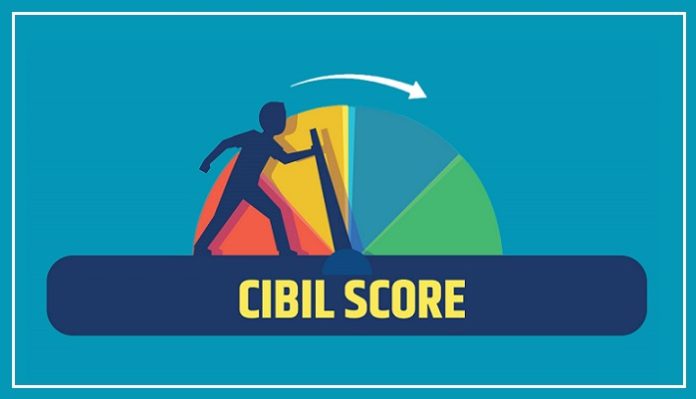Your CIBIL score is influenced by various factors and can fluctuate based on your credit activities.
For example, applying for a loan may result in a decrease of 5-10 points, while timely repayment of EMIs or credit can lead to an increase.
If you’re wondering how to improve your CIBIL score, we have the perfect answer.
What is CIBIL Score?
A CIBIL Score is a credit score obtained from TransUnion CIBIL Limited, a widely recognized credit bureau. It is a 3-digit number that ranges from 300 to 900, serving as an indicator of a person’s creditworthiness.
A higher credit score, closer to 900, can result in more attractive credit offers from lenders, including lower interest rates.
How Much CIBIL Score is Enough?
While it’s important to strive for a high CIBIL score close to 900, the ideal range is generally considered to be 750 or above.
Most major lenders view a CIBIL score of 750 or higher as favorable, and may decline loan or credit card applications below this threshold.
However, some lenders may still consider applications with a credit score above 650, depending on factors such as income and individual circumstances.
Benefits of a High CIBIL Score
Here are the Major Benefits of a High CIBIL Score:
- Your chances of loan and credit approvals increase
- You will get low-interest rate offers when you apply for a loan.
- Increase in Pre-approved loan offers.
- A higher CIBIL score opens the door to premium credit cards
- Easy access to higher loan amounts and credit card limits.
- You will get easy approvals for longer-tenure loans.
How to Improve CIBIL Score?
Here are the 10 Solid Ways to Improve Your CIBIL Score:
1. Repay on Time
Regardless of other factors, timely repayment of loan amounts and credit card bills can significantly improve your CIBIL score. By being a creditworthy borrower and consistently making on-time repayments, you can substantially increase your credit score.
So, when seeking ways to improve your CIBIL score, repaying credit amounts punctually is one of the most effective strategies.
2. Check for Errors in CIBIL Report
Occasionally, a CIBIL report may contain entries or loan information that you never applied for, or it may contain errors in calculating EMIs.
In such cases, if you identify any discrepancies in your CIBIL report, it is essential to raise a dispute with TransUnion CIBIL Limited to rectify the inaccuracies.
3. Have a Healthy Credit Mix
Maintaining a healthy credit mix is crucial. This means that if you have a Buy Now Pay Later (BNPL) account and a small consumer loan, you should also have a credit card.
For instance, having a diverse range of secured loans can make you a valuable customer in the eyes of lenders. However, if you have more unsecured loans, it is important to ensure that all bills are paid on time.
4. Clean all Credit Cards
It is essential to maintain a clean credit card repayment record. Avoid making partial payments unless it is absolutely necessary due to your financial circumstances.
Aim to repay the full bill amount on time to maintain a positive credit card history.
5. Don’t Become a Joint Account Holder
If you become a joint account holder or guarantor for a loan or credit card, you are equally responsible for timely bill payments.
If your partner fails to pay bills on time, it can negatively impact your CIBIL score as well.
6. Getting a Secured Card
A secured credit card is backed by a fixed deposit scheme.
Applying for a secured card with reputable lenders such as Axis Bank, ICICI Bank, SBI Bank, etc., can potentially boost your CIBIL score quickly.
7. Don’t Apply for Multiple Credit Options
It is important to be cautious when applying for a credit card or loan from a bank. Submitting multiple applications within a short time frame can significantly lower your CIBIL score.
This often occurs when your credit or loan application is rejected by a lender, and you subsequently apply with other lenders in quick succession. This results in numerous hard inquiries on your credit report, which can have a detrimental impact on your credit score.
8. Track Credit Utilization Ratio
As per expert advice, it is recommended to keep your credit utilization below 30% of your total credit limit. Whether you have a BNPL account, credit card, or any other financial product from a lender, exceeding 30% credit utilization can have negative consequences.
In case of unfavorable financial circumstances, it is advisable to limit your credit utilization to 50% of the total credit limit. Higher credit utilization signifies a heavy reliance on credit from lenders, which can impact your creditworthiness.
9. Increase Credit Limit
If your lender offers to increase your credit limit, it’s advisable to accept the offer. The key to improving your CIBIL score is not to have a small credit limit and fully utilizing it.
Instead, it’s better to have a high credit limit and maintain a low utilization ratio. This reflects positively on your creditworthiness and can help improve your CIBIL score.
10. Choose Long Tenures
When applying for a loan, opting for a longer repayment tenure can be beneficial. It not only lowers your EMI amounts but also provides you with more time to work on improving your CIBIL score.
This allows you to manage your finances more effectively and take steps towards enhancing your creditworthiness.
